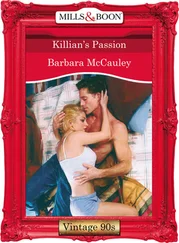Barbara Branden - The Passion of Ayn Rand
Здесь есть возможность читать онлайн «Barbara Branden - The Passion of Ayn Rand» весь текст электронной книги совершенно бесплатно (целиком полную версию без сокращений). В некоторых случаях можно слушать аудио, скачать через торрент в формате fb2 и присутствует краткое содержание. Жанр: Биографии и Мемуары, на английском языке. Описание произведения, (предисловие) а так же отзывы посетителей доступны на портале библиотеки ЛибКат.
- Название:The Passion of Ayn Rand
- Автор:
- Жанр:
- Год:неизвестен
- ISBN:нет данных
- Рейтинг книги:4 / 5. Голосов: 1
-
Избранное:Добавить в избранное
- Отзывы:
-
Ваша оценка:
- 80
- 1
- 2
- 3
- 4
- 5
The Passion of Ayn Rand: краткое содержание, описание и аннотация
Предлагаем к чтению аннотацию, описание, краткое содержание или предисловие (зависит от того, что написал сам автор книги «The Passion of Ayn Rand»). Если вы не нашли необходимую информацию о книге — напишите в комментариях, мы постараемся отыскать её.
The Passion of Ayn Rand — читать онлайн бесплатно полную книгу (весь текст) целиком
Ниже представлен текст книги, разбитый по страницам. Система сохранения места последней прочитанной страницы, позволяет с удобством читать онлайн бесплатно книгу «The Passion of Ayn Rand», без необходимости каждый раз заново искать на чём Вы остановились. Поставьте закладку, и сможете в любой момент перейти на страницу, на которой закончили чтение.
Интервал:
Закладка:
Her answer to that slogan, in the form of a conscious conviction and of a passionate dedication — an answer that would become a major theme of all her future work — was that nothing could be higher or more important than an individual's right to his own life, that that was a right beyond the claim of any other individual or group or collective or state or the whole population of the globe.
The course of her life — which before had been moved forward by her vision of a god, the god that was Cyrus and what he represented — now was moved forward as well by a devil: the philosophy of sacrifice. Again, in the complex soul that was Alice Rosenbaum, Ayn Rand was being born.
Despite the accelerating terror and misery of the Bolshevik regime, Alice was not wholly absorbed with politics. In 1917 and 1918, two events occurred which she felt even then were as important for her future as the political nightmare around her.
The first event was a change in her method of thinking. She called her new method "thinking in principles." "I began to formulate reasons consciously," she later said. "I began to ask myself the why of the ideas I believed, and to integrate them. Before, I had very strong value judgments, but they were not very connected." She saw her new method as a major step toward the adulthood for which she longed. It was adults who formulated their ideas in conscious, conceptual terms, who constructed logical chains of why's, who identified the deepest reasons of their convictions, who asked themselves what they believed, and why they believed it. Now, she was learning to do it, too. Alice was following a path not unusual in highly intelligent children entering adolescence. But in a manner that always was to be an essential element in her psychology and method of intellectual functioning — a method that perhaps in part explains the range and controlled power of her mind — she stopped to try to name her path, to grasp it, to conceptualize it, and, most important, to put it under her conscious control. She began to keep a diary in which she wrote down not the events of her life, not the terror and suffering of the political upheaval, but the ideas she was thinking about and the stories she was planning to write. It was, she reported, a period of "wonderfully intense intellectual excitement."
The changes in her method of thinking affected her writing in a manner that was, at first, frightening to her. "Before, I don't remember the genesis of any of my stories — they would come to me as a whole, I would have the idea 'wouldn't it be interesting if... ?' — and I would have the whole story. I had no critical faculty, I would write whatever my subconscious had connected. But now, I began to project an idea in abstract terms. I began to be self-critical, and I gave myself the assignment of what sort of story I wanted it to be. I would have the abstract intention, and the characters, but no specific plot. No concrete climax. And when I tried to fill it in, I couldn't. I could not find the concretes. Suddenly, for the first time in my life, I couldn't invent a story. It was a terrifying experience. My 'block' trouble started then, at the age of twelve. Thereafter, until I left Russia, I was writing themes down, I had lots of ideas either for plays or novels, I always got an idea that was part theme and part situations that would be clear, and never filled out the rest. Some were more filled out than others, some I left for future reference. I began to list themes and situations to write when I grew up. I knew I didn't yet have the knowledge to carry them out."
With the Bolshevik revolution, Alice's story themes became political. All of them concerned individualistic heroes, fighting against the Communists or against a king. "They were usually laid abroad, I never intended to write stories laid in Russia. Russia was too fiat, too commonplace... it's stupid, backward, mystical, and sentimental. But abroad, or in historical dramas — that is civilization, that is intellectual, rational people."
All of her life, Alice — despite her love for the gracious city of her birth — was to speak of Russia with loathing, a loathing, she reported, that she felt even before the Communist revolution. She saw Russia as a nation that glorified the tragic and the malevolent, glorified the very qualities that were the antithesis of what she wanted in her own life and what she wanted to create in her stories. "It was the antithesis of my tiddlywink music," she later recalled thinking. It was the antithesis of the joy that she held as her birthright and her goal. And as, over the years, she became more consciously and passionately anti-mystical and pro-reason, championing man's reasoning faculty as the source of any value life might hold and denouncing faith as anti-man and anti-life, what she would call "Russian mysticism" became the synonym for all that was dark and evil and dedicated to the destruction of human life. It was the West — England in her early years, when she knew little of America — that was her ideal. When, in college in Petrograd, she began to see American movies, her allegiance was transferred to all things she saw as "typically American." All her life, she was to respond to men and women who had an appearance and manner she believed to be "the best of the American type": the tall, blond, long-legged, emotionally reserved men and women who would typify the heroes of her novels. When the movie of The Fountainhead was made in 1948, she hoped, although she had no power of decision, that Gary Cooper would be chosen for the part of Howard Roark; his appearance was what she had visualized for her character; and she was delighted when he was chosen. In the 1970s, Farrah Fawcett — so archetypical an American girl, an American version of Daisy — became a favorite of hers, and her choice for the part of Dagny Taggart had Atlas Shrugged been filmed. Many people, even among her close friends, were incredulous that so intellectual a woman as Ayn Rand was fascinated by such nonintellectual types as Gary Cooper and Farrah Fawcett: they did not know Alice Rosenbaum, the little girl in love with the gaiety, the benevolence, the clean-limbed agility, the "non-Russian soul" of Americans. Frank O'Connor, the man she married and loved for more than fifty years, might, in appearance, have been a brother of Gary Cooper.
The second great event in Alice's life during the immediate post-revolutionary period was the discovery of a writer whose work profoundly influenced her future literary development: Victor Hugo. She was later to say that he was the single influence on her in all literature.
In her classes in school, Alice had been exposed to the great classics of Russian literature — which, predominantly, she hated. She later said, "In Russian literature, there was nothing that would answer to my particular taste. There are either the great naturalists like Turgenev and Chekhov and Tolstoy, or the romantics like Pushkin or some others, usually poets, who are always Byronic and malevolent. I loathed stories of tragic, hopeless romance, I was extremely contemptuous of love stories. I despised the idea of love as the main concern, even at twelve, and from then on more so."
While the Bolshevik revolution raged on the streets of Petrograd, Anna Rosenbaum, determined that Alice further improve her French, gave her Hugo's The Man Who Laughs. It was a thunderclap of light exploding in the dull grayness of her life. After reading it, she turned to Les Miserables, then to all the rest of Hugo's novels. "I was fascinated by Hugo's sense of life," she said many years later, still glowing from the radiance of the memory. "It was someone writing about something important. I felt that this is the kind of writer I would like to be, but I didn't know how long it would take. I knew I could not now dream of touching the way he wrote. I was aware of to what extent he was a giant literarily. I knew that The Man Who Laughs was not my kind of heroic story in adult terms that "The Mysterious Valley' was for me as a child. "The Mysterious Valley' was nearer to my sense of life than Hugo." But she had discovered, she felt, a world of unprecedented scope and grandeur, of magnificently ingenious plots, of inexhaustible imaginativeness, of an exalted sense of life — of man seen as a hero.
Читать дальшеИнтервал:
Закладка:
Похожие книги на «The Passion of Ayn Rand»
Представляем Вашему вниманию похожие книги на «The Passion of Ayn Rand» списком для выбора. Мы отобрали схожую по названию и смыслу литературу в надежде предоставить читателям больше вариантов отыскать новые, интересные, ещё непрочитанные произведения.
Обсуждение, отзывы о книге «The Passion of Ayn Rand» и просто собственные мнения читателей. Оставьте ваши комментарии, напишите, что Вы думаете о произведении, его смысле или главных героях. Укажите что конкретно понравилось, а что нет, и почему Вы так считаете.










